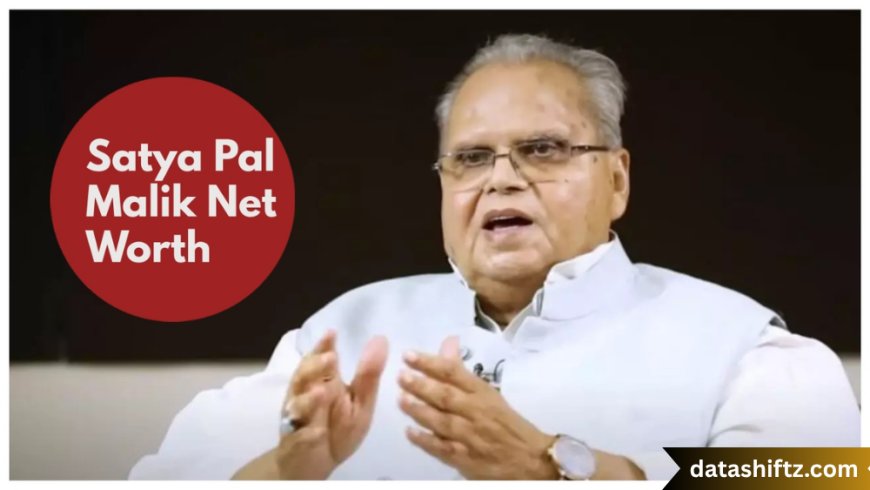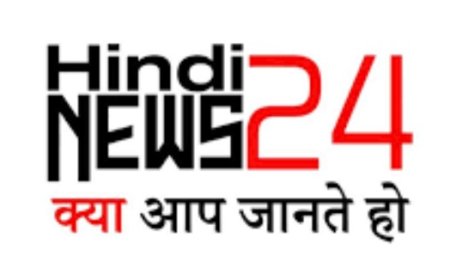Satyapal Malik: A Political Journey of Principles, Controversies, and Courage

Introduction
Satyapal Malik, a seasoned Indian politician, has been a key figure in the country’s political landscape for decades. From being a member of Parliament to serving as the Governor of multiple Indian states, Malik has worn many hats. His political career, spanning over five decades, has not only been marked by significant administrative responsibilities but also by his bold statements, uncompromising views, and outspoken nature—qualities that have often brought him into the national spotlight.
In recent years, Satyapal Malik has emerged as a vocal critic of government policies, particularly around sensitive issues such as the abrogation of Article 370, the 2019 Pulwama attack, and the farmer protests. His candid remarks have made him both a controversial figure and a symbol of courage in Indian politics.
This comprehensive blog post takes an in-depth look at Satyapal Malik’s political career, his governorships, key statements, controversies, achievements, and the legacy he is carving in Indian public life.
Early Life and Political Beginnings
Background and Education
Satyapal Malik was born on 24 July 1946 in Hisawada village of Baghpat district, Uttar Pradesh. Hailing from a Jat family, he pursued law and political science, completing his LLB and MA from Meerut College, affiliated with Meerut University. His rural upbringing and deep connection to agrarian communities shaped much of his political ideology.
???? Education & Personal Info – Table Form
| Parameter | Details |
|---|---|
| Full Name | Satyapal Malik |
| Date of Birth | 24 July 1946 |
| Birthplace | Hisawada, Baghpat, Uttar Pradesh |
| Education | BA, MA (Political Science), LLB |
| Profession | Politician, Lawyer |
| Caste | Jat |
| Political Affiliation | Multiple (past: Janata Dal, BJP, others) |
Entry into Politics
Satyapal Malik began his political journey with the Bharatiya Kranti Dal, the party founded by Chaudhary Charan Singh, which represented rural and farmer interests. He was later elected to the Rajya Sabha in 1980, representing Uttar Pradesh. Over time, he became associated with multiple political parties, including:
-
Lok Dal
-
Janata Dal
-
Samajwadi Party
-
Bharatiya Janata Party (BJP)
This non-linear party affiliation reflects his ideology-driven rather than party-loyal style of politics.
????️ Political Timeline – List Form
-
Started political career with Bharatiya Kranti Dal
-
Elected to Rajya Sabha from Uttar Pradesh in 1980
-
Served as MP in the 9th Lok Sabha (1989–91) from Aligarh
-
Joined BJP in the early 2000s
-
Served as Governor of several Indian states from 2017–2022
Gubernatorial Tenure – States, Impact, and Controversies
Multiple Governorships
Malik's governorship was unique as he was appointed to four Indian states over five years:
-
Governor of Bihar (2017–2018)
-
Governor of Jammu and Kashmir (2018–2019)
-
Governor of Goa (2019–2020)
-
Governor of Meghalaya (2020–2022)
He is particularly remembered for his tenure in Jammu & Kashmir, where he oversaw the abrogation of Article 370 and the bifurcation of the state into two Union Territories.
????️ Gubernatorial Positions – Table Form
| State | Tenure | Notable Events |
|---|---|---|
| Bihar | Oct 2017 – Aug 2018 | Administrative reforms |
| Jammu & Kashmir | Aug 2018 – Oct 2019 | Article 370 abrogation, Pulwama attack |
| Goa | Nov 2019 – Aug 2020 | Criticism of corruption in state govt |
| Meghalaya | Aug 2020 – Oct 2022 | Spoke on farmer protests, national issues |
Bold Statements and Political Stance
Satyapal Malik’s tenure as J&K Governor brought him into the national spotlight, especially post the Pulwama terror attack in 2019, in which 40 CRPF personnel were martyred. Malik claimed that security lapses and ignored intelligence inputs had contributed to the tragedy.
He also alleged that he was silenced by the central government when he tried to speak on the matter. His statements triggered debates around accountability in matters of national security.
???? Controversial Statements – List Form
-
Pulwama Attack Was Preventable – Claimed intelligence warnings were ignored.
-
On PM Modi – Said PM told him to "stay quiet" after Pulwama remarks.
-
On BJP – Accused party of not supporting farmers' welfare.
-
On Farmers’ Protest – Vocal supporter; called government’s attitude arrogant.
-
On Corruption in Goa – Alleged widespread political corruption.
Support for Farmers and Post-Governor Activism
Championing the Farmer Cause
After his retirement from gubernatorial roles, Malik remained actively engaged in public discourse, especially as a fierce supporter of the farmer protests that erupted in 2020 against the now-repealed farm laws.
His speeches at farmer rallies across Uttar Pradesh, Haryana, and Punjab resonated with rural communities. Despite being a former BJP governor, Malik publicly criticized the party’s policies, calling the farm laws “pro-corporate and anti-farmer.”
???? Key Pro-Farmer Views – Table Form
| Issue | Satyapal Malik’s Stand |
|---|---|
| Farm Laws | Against – called them unjust and undemocratic |
| MSP (Minimum Support Price) | Advocated for legal guarantee |
| Farmer Deaths | Held govt responsible for protest casualties |
| Corporate Takeover | Opposed privatization of agriculture |
| Rural Economy | Urged revival of cooperative movements |
???? Farmer Advocacy Activities – List Form
-
Addressed mass rallies in Western UP
-
Appeared in multiple interviews on farmers' issues
-
Met farmer leaders and extended political support
-
Criticized lack of MSP guarantee in new bills
-
Promoted Jat unity and agrarian rights across India
Political Philosophy and Public Perception
A Man of Principles or a Rebel?
Public opinion around Satyapal Malik is divided. Some consider him a true statesman who speaks the truth without fear, while others view him as a political maverick or a disgruntled former governor.
His ideology remains deeply rooted in rural empowerment, transparency, and nationalism, albeit with strong criticism of any party (including BJP) that he believes strays from these principles.
???? Core Ideological Values – Table Form
| Value | Description |
|---|---|
| Transparency | Against political corruption |
| Rural Development | Focus on agriculture and cooperatives |
| Freedom of Speech | Believes in speaking truth to power |
| National Security | Critic of operational failures |
| Inclusive Democracy | Supports dialogue over suppression |
???? Public Perception – List Form
-
Fearless Speaker – Unafraid of confronting high authorities
-
Champion of Rural India – Especially loved in Jat belt
-
Controversial Commentator – Seen as unpredictable by political elites
-
Anti-Establishment Voice – Gains popularity for dissent
-
Political Outsider – Currently not affiliated with any party
Future Prospects and Legacy
What Lies Ahead for Satyapal Malik?
As of 2025, Satyapal Malik is not associated with any political party. However, there is speculation that he may either float a new farmer-centric political platform or join hands with existing regional parties in Uttar Pradesh or Haryana to counter the BJP narrative.
He continues to be a sought-after speaker, regularly invited to forums, media interviews, and policy debates.
???? Possible Future Roles – List Form
-
Launching a rural/farmer-focused political outfit
-
Writing memoirs or policy critique books
-
Joining an Opposition coalition as a public voice
-
Working with civil society or farmer unions
-
Contesting Lok Sabha 2029 from Western UP
???? Legacy Summary – Table Form
| Domain | Impact/Contribution |
|---|---|
| Governance | Managed sensitive regions like J&K |
| Farmer Rights | Vocal support during protests |
| Political Transparency | Exposed systemic lapses and silencing |
| Public Discourse | Added value to democratic debate |
| Leadership Style | Bold, unfiltered, and grounded |
Conclusion
Satyapal Malik’s political journey is a testament to the complex and often unpredictable nature of Indian democracy. A man who started from grassroots rural politics, rose to serve as Governor of multiple states, and now stands as a bold critic of the establishment, Malik has constantly reinvented himself. His honesty and willingness to speak truth—even when inconvenient—set him apart in a political landscape that often prizes diplomacy over directness.
Whether he chooses to remain an independent voice, form a new political outfit, or fade into retirement, Satyapal Malik’s role in Indian politics will be remembered as that of a courageous statesman—a voice of the voiceless, especially the farmers.





























